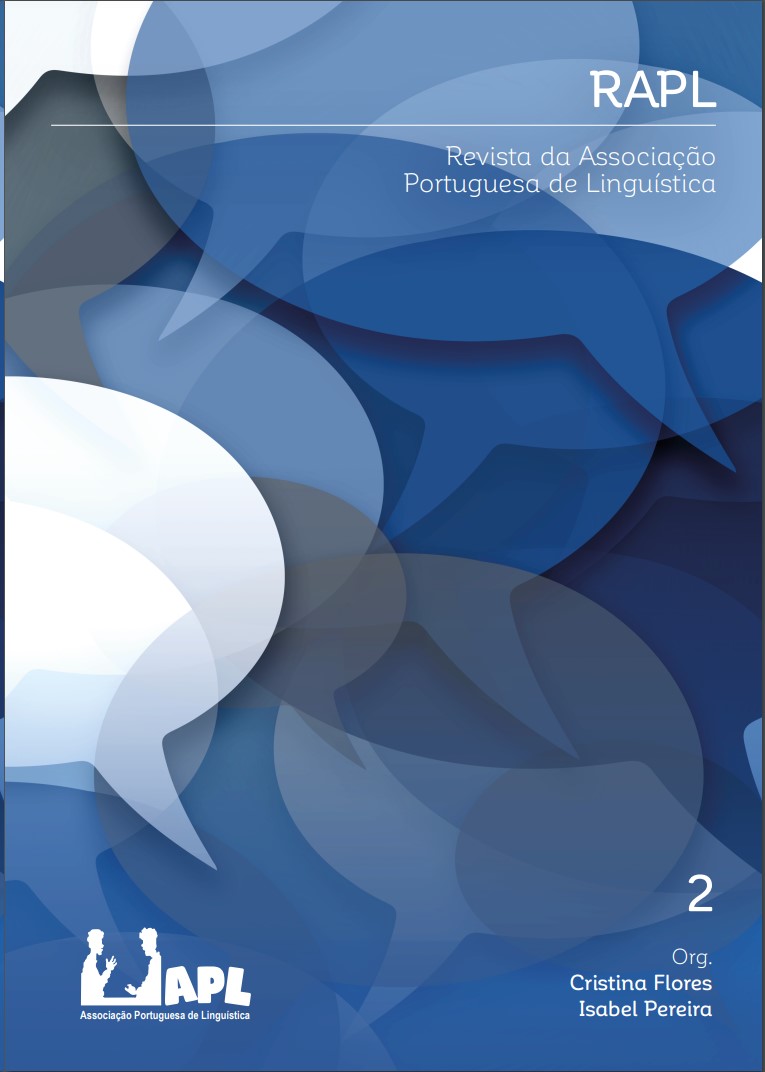Ambiguidade pronominal em orações adverbiais do português europeu: crianças vs. adultos
DOI:
https://doi.org/10.26334/2183-9077/rapln2ano2016a14Palavras-chave:
resolução de anáfora, pronome nulo, pronome sujeito, aquisição, portuguêsResumo
This paper investigates how European Portuguese children interpret null and overt subject pronouns of adverbial clauses when there are two potential antecedents in the main clause, in order to find out how early the preferred readings are acquired in European Portuguese for each type of pronoun. Our results show that the control group of adults behaves as expected, choosing more often subject antecedents for null subjects and non-subject antecedents for subject pronouns, but children are predominantly at chance. The preferred interpretation for null subjects is acquired earlier than the one for overt pronouns and anaphoric contexts are acquired earlier than cataphoric ones. We attribute this developmental pattern to the fact that null pronouns are morphosyntactically more deficient and less dependent on semantic, discourse and prosodic factors, and to processing constraints related to the linear position of the antecedent.
Downloads
Downloads
Publicado
Como Citar
Edição
Secção
Licença

Este trabalho encontra-se publicado com a Licença Internacional Creative Commons Atribuição-NãoComercial-CompartilhaIgual 4.0.
Os autores mantêm os direitos autorais e concedem à revista o direito de primeira publicação. Os artigos estão simultaneamente licenciados sob a Creative Commons Attribution License que permite a partilha do trabalho com reconhecimento da sua autoria e da publicação inicial nesta revista.
Os autores têm autorização para disponibilizar a versão do texto publicada na RAPL em repositórios institucionais ou outras plataformas de distribuição de trabalhos académicos (p.ex. ResearchGate).





